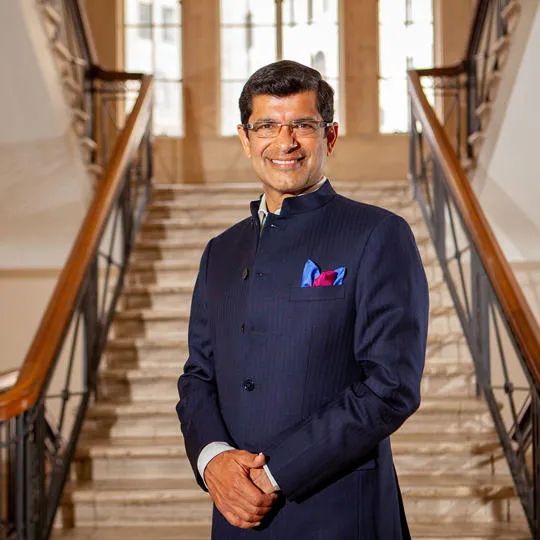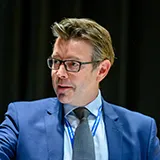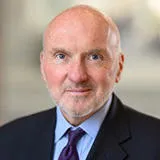This conference comes at an important moment - with upheaval around the world, escalating Great Power competition in many parts of the globe and the return of war to Europe. Understanding the geopolitical trends behind these events and emerging future challenges for defence and security policy has never been more important and it is our intention that the London Defence Conference will provide an annual forum for a range of topical defence and security questions to be discussed.
Professor Shitij Kapur, President & Principal at King's College London
23 May 2023
Day 1: The London Defence Conference, hosted by King's
Security and defence experts and leading political figures from around the world are attending a major two-day conference at King’s, discussing how to better navigate the geopolitical and geo-economic challenges – both now and in the future.
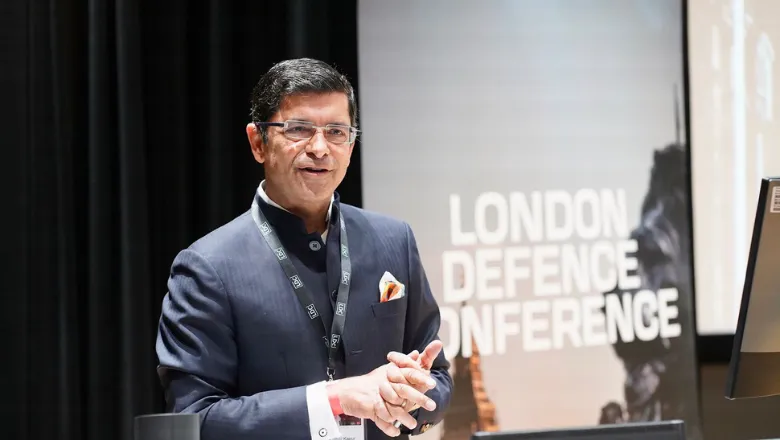
The annual London Defence Conference (LDC), hosted at Bush House by King’s School of Security Studies, brings together leading international military experts, policymakers, academics, and media commentators to consider how global geopolitics and the nature of conflict are changing.
In his opening remarks, King’s President and Principal, Professor Shitij Kapur, welcomed delegates.
“I am particularly pleased that the conference is being held in a university context, bringing together today’s policymakers and their advisers alongside a number of our early career academics and students. What better way to give reality to our goal at King’s to promote ‘Knowledge in the service of Society’.”
The theme for the LDC 2023 is “Stronger security in a fast-changing world”, with discussions centered around lessons from Ukraine; geopolitics and the new Cold War; NATO and European Security; AUKUS and Indo-Pacific security; and the impact of fast-evolving technology, particularly in air and space.
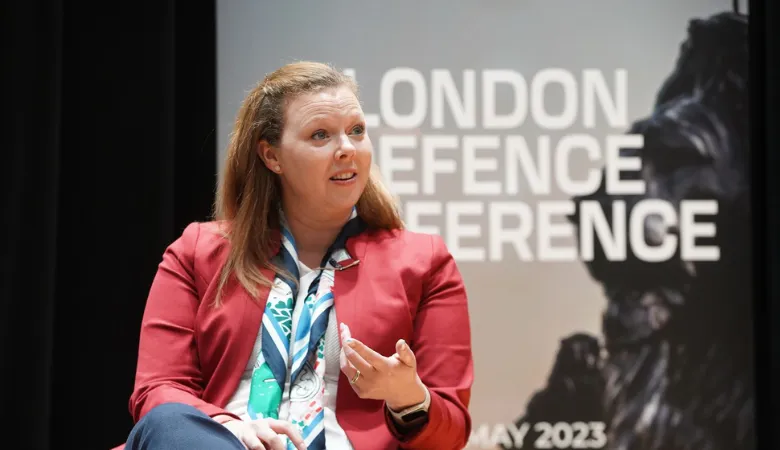
Speaking at the conference this morning, UK Prime Minister Rishi Sunak told Iain Martin, Director of the LDC, that Russia’s invasion of Ukraine has been a catalyst to change the security architecture of the world, before issuing a warning to President Putin that the UK and other allies are “not going away”.
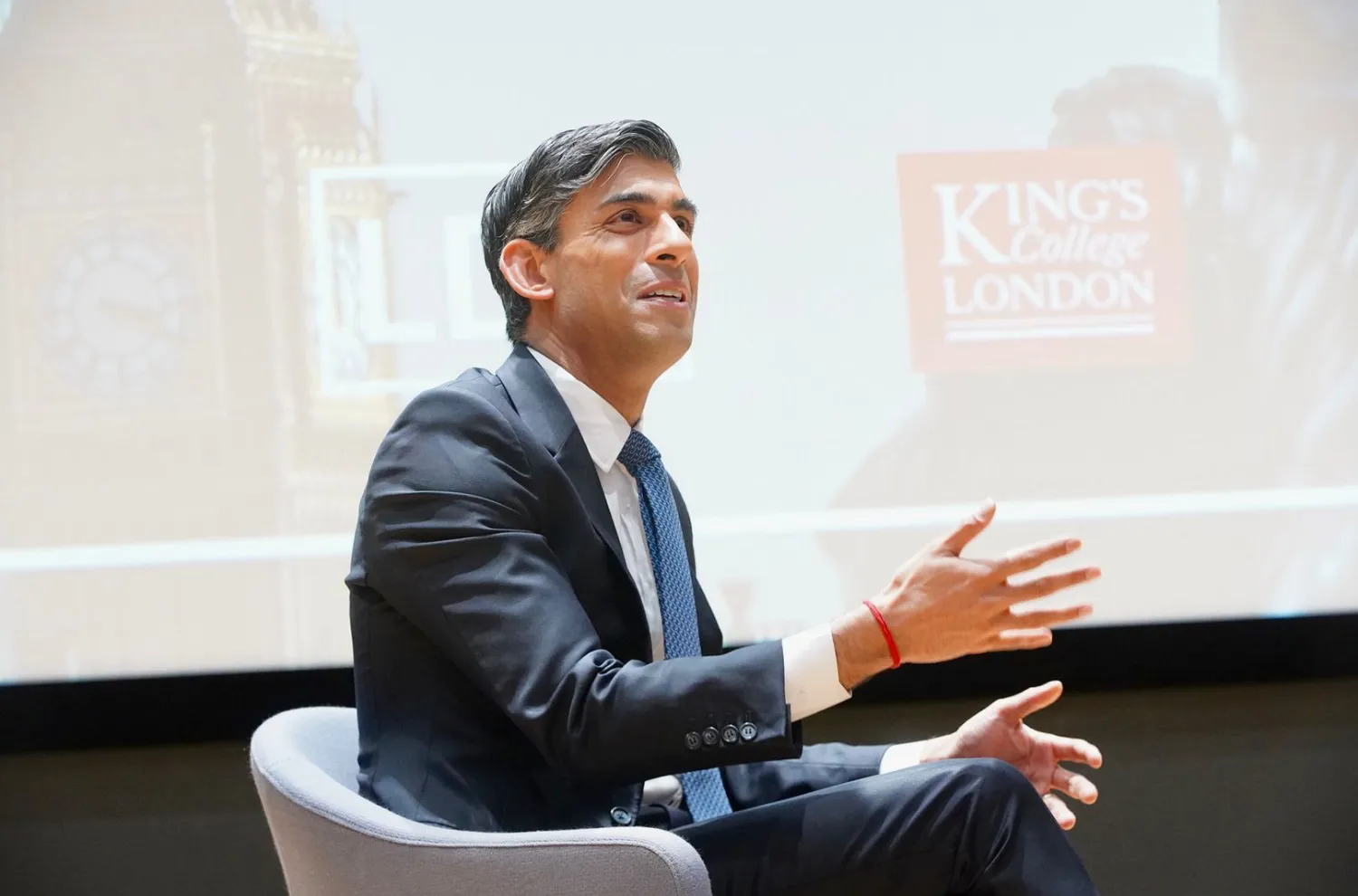
Following his attendance at the G7 summit in Japan last weekend, the Prime Minister also spoke about the UK’s relationship with China, emphasising the importance of cohesion between G7 countries.
There’s lots of reasons why the G7 as a grouping of like-minded allies aligned on this topic, sharing values, are well placed to deal with the challenge that China poses. If you look at the security strategies in America, in Japan, in France and in other ally countries, you’ll see there is actually an enormous amount of overlap – that's what gives me confidence that there is consistency.
Prime Minister Rishi Sunak
Later in the day, the Rt Hon John Healey MP, UK Shadow Secretary of State for Defence, told the LDC audience that the UK needs to prioritise strengthening international relationships - in particular, reinforcing the USA as the UK’s closest and most important security ally, and rebuilding relations with important European allies in the wake of Brexit. He said: “Our allies are our strategic strength”.
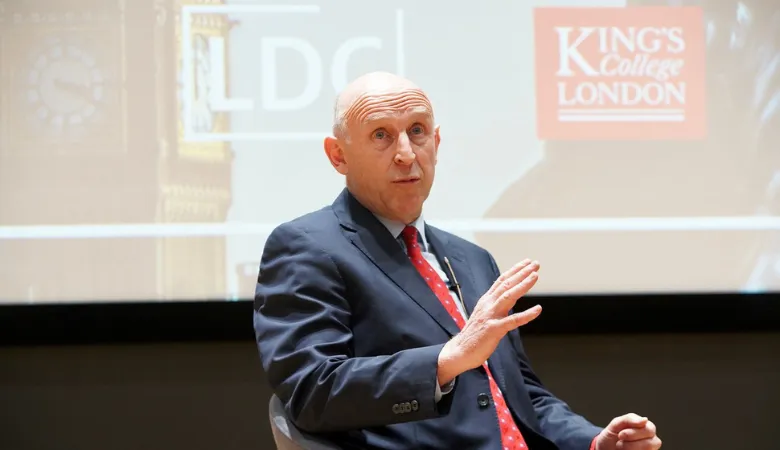
Intended to inspire vigorous debate between friends and allies, the LDC programme includes a series of public panels, keynotes and ‘in conversation’ sessions over the two days, offering an opportunity for invitees to hear from high-profile, influential voices.
In an international keynote speech, the President of Poland, Andrzej Duda, thanked the UK for its support and cooperation, and urged more nations to work together to stop the war in Ukraine.
“The challenging international situation today requires our involvement beyond our own regions - we must start to talk together with countries of the Global South, especially Africa. In order to restore the global order based on our shared roles of equality, respect and sovereignty, with respect for international law, we must respond to the aggression in a united way. Europe must stay united and help Ukraine. It is only with our help that the end of this war will be possible."
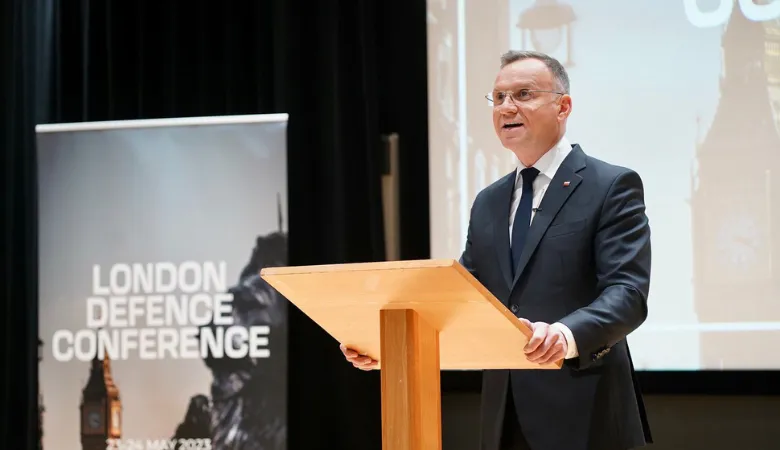
King's School of Security Studies is a global leader in the fields of security, defence and war studies and is home to one of the largest multi-disciplinary groups of scholars dedicated to the study of these subjects in all their aspects. The School can trace its antecedents back to the study of Military Sciences in mid-1800s and the establishment of a chair of Military Studies in 1927.

